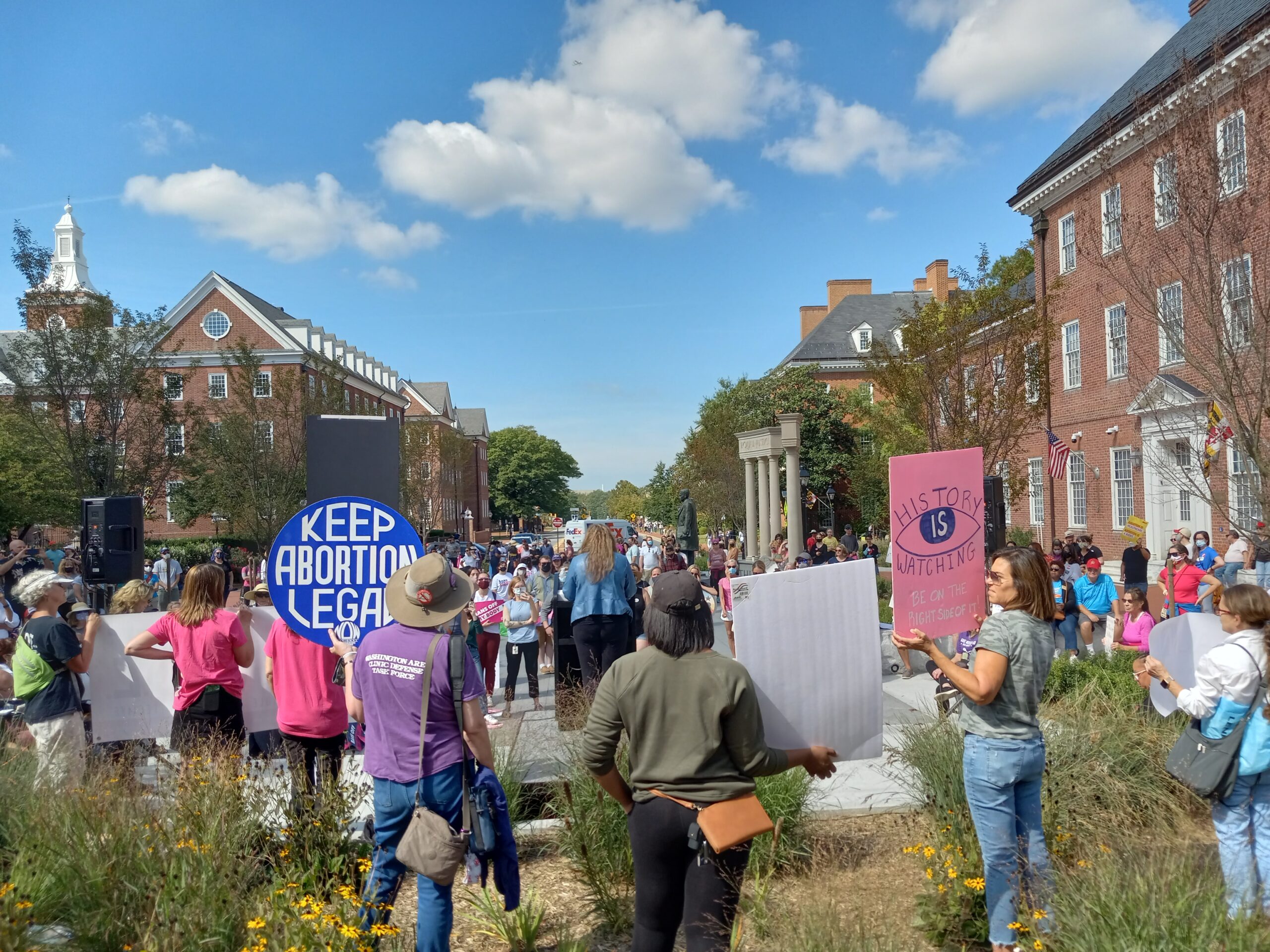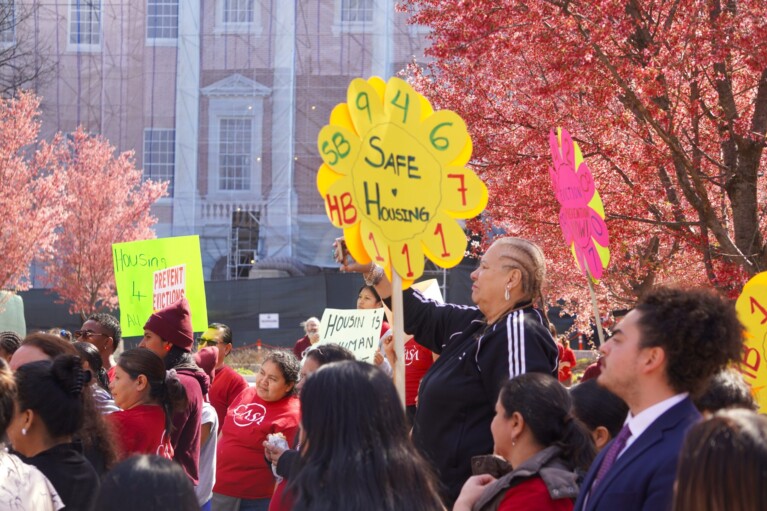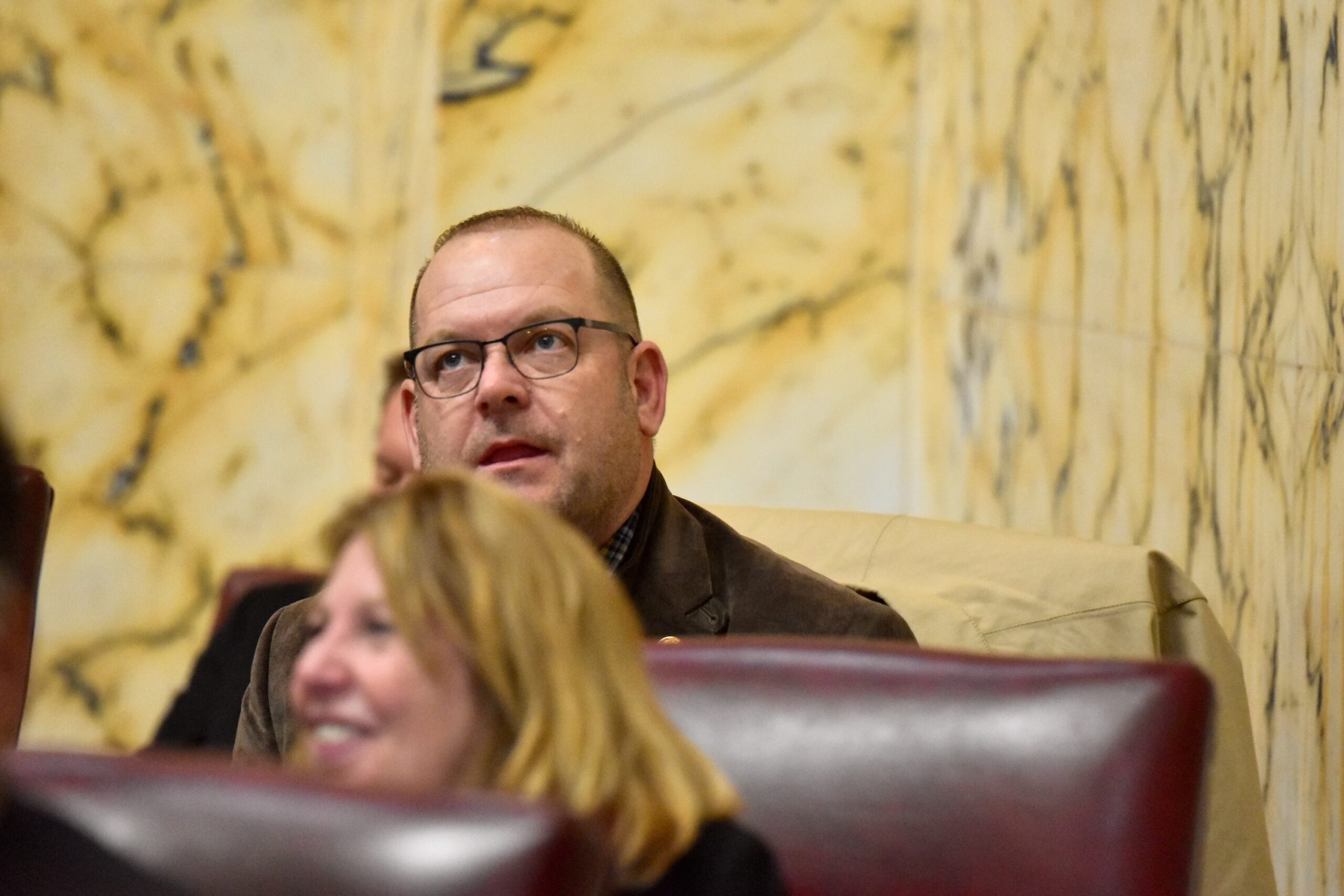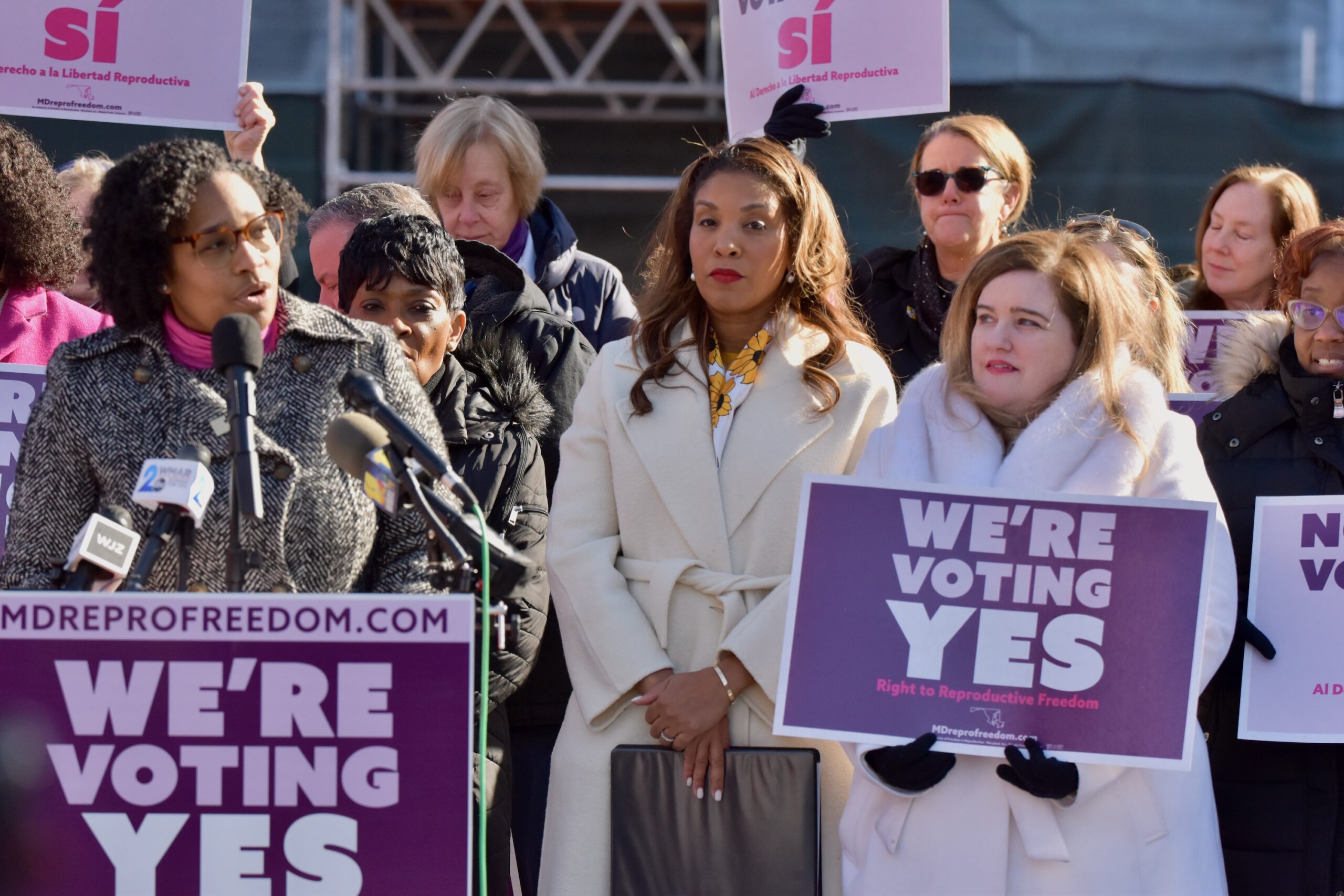Leading Md. Abortion Rights Group Restructures as Legislative Fight Kicks Off

As reproductive rights advocates gear up for a push to strengthen Maryland’s abortion protections, a leading player in the legislative battle finds itself retooling some of its operations as the year begins.
On New Year’s Day, NARAL Pro-Choice America, a top national abortion rights organization, separated from its 11 state affiliates — including the one in Maryland. The group formerly known as NARAL Pro-Choice Maryland has been rebranded as Pro-Choice Maryland.
The leader of the Maryland group, Lily Bolourian, insists that the change is for the better — that Pro-Choice Maryland will have greater focus and more autonomy.
“We are excited now to have been given full independence,” she said Wednesday. “We’re already seeing support from small-dollar donors grow.”
But the transition hasn’t all been seamless and amicable. And it comes as reproductive rights across the U.S. are being threatened as never before — and as a new push to strengthen abortion laws in Maryland begins in direct response to the restrictions popping up in other states.
Some of the state-based affiliates did not agree with the national organization’s plan to disassociate itself from its state chapters. That decision was made by the NARAL Pro-Choice executive board after a quinquennial review of its operations. Besides Maryland, the national group cut ties with chapters in Virginia, North Carolina, Connecticut, Massachusetts, Washington, Oregon, Missouri, Ohio, Minnesota and Wyoming.
In a treatise posted on the website Medium last summer, the executive board said the threats to abortion rights necessitated a change in focus at the national organization.
“To state the obvious, the legal right to abortion is hanging on by an extremely tenuous thread, especially for those most marginalized by our healthcare systems, including Black, Indigenous, Latinx, Asian American and Pacific Islander, and other communities of color; LGBTQ people; those working to make ends meet; and people living in rural areas,” the board wrote.
“NARAL has been and will continue to be an outspoken advocate for abortion access and reproductive freedom, running hard-hitting campaigns, working in partnership with a wide range of allies, and electing and holding to account candidates and lawmakers.”
But the board asserted that after “evaluating and re-evaluating the landscape,” NARAL leaders concluded that “our affiliated structure…has not been functioning as strongly as it could for NARAL Pro-Choice America, for the individual affiliates, or for our movement and the important work that lies ahead.” Board members decided “we needed to shift to a nationwide model working at both the federal level and on the ground in the states and in communities, rather than an affiliated structure.”
One national abortion rights leader, speaking on the condition of anonymity to discuss internal organizational politics, said the relationship between NARAL and the state affiliates “was more of a loose confederation” than a top-down structure with the national organization dictating to the locals.
This is hardly the first structural change in the half-century history of the venerable abortion rights organization, once known as the National Abortion Rights Action League. Some state affiliates voluntarily separated from the national organization years ago.
Pro-choice advocates believe that abortion rights are jeopardized as never before, at the national, state and local levels. The U.S. Supreme Court is expected to overturn or drastically curtail the landmark 1973 Roe v. Wade ruling that legalized abortion rights throughout the country, and several states have moved to adopt major restrictions on the procedure.
Bolourian said the Maryland organization and other state chapters resisted a breakup with national NARAL. They believed there was value in being part of a broader network, with an opportunity to share data, political intelligence and best practices.
“We’re disappointed in the way it was done,” Bolourian said. “We’re disappointed that they didn’t listen to our voices as senior organizers.”
But she also said that the state organizations may now be able to operate without certain constraints imposed by national NARAL. On top of that, she said, the change in status may eliminate confusion about the relationship between the national organization and its former state affiliates.
In the past, some Maryland-based donors to national NARAL, Bolourian said, were disappointed to learn that their contributions to the national organization could not be used for Maryland campaigns.
State Del. Ariana B. Kelly (D-Montgomery), the lead sponsor of some of the abortion bills that will be debated in this year’s General Assembly session, said the shift should not diminish the Maryland advocacy group’s effectiveness. Kelly knows a thing or two about how the organization works: She was NARAL Pro-Choice Maryland’s executive director from 2005 to 2008, before she was elected to the House of Delegates.
Kelly said that during her time leading the organization, national NARAL accounted for less than 10% of the Maryland affiliate’s annual budget.
“I am not worried” about the change in relationship, she said. “They did not depend on the national organization all that much.”
Pro-Choice Maryland, Kelly added, “is going to continue to exist. It’s going to continue to be a powerhouse on women’s health policy. In many ways, it’s more important to have a robust statewide organization.”
Kelly’s package of bills, which have yet to be introduced, are designed to expand women’s access to reproductive services in the state. The measures would waive a state requirement that abortions be performed by a physician, and would enable midwives and nurse practitioners to perform the procedure. The bills would also aim to ensure that insurance companies cover abortions as medical procedures and that patient co-pays for reproductive services are not exorbitant.
Kelly also said that lawmakers will attempt to ensure that reproductive services are more evenly distributed across the state and not just available in urban and large suburban jurisdictions. She said Maryland has already seen an uptick in out-of-state women seeking abortions since Texas enacted a law banning abortions after a woman has been pregnant for six weeks, and she expects that number to increase if the Supreme Court enables other states to restrict abortion services.
Senate Finance Chair Delores G. Kelley (D-Baltimore County) is expected to introduced the Senate version of the abortion rights package.
Separately, Del. Nicole Williams (D-Prince George’s) and state Sen. William C. Smith Jr. (D-Montgomery) are introducing bills to prevent prosecution of women who seek abortion services and those individuals who help them obtain it. That’s an attempt to flip the recently enacted Texas law that seeks fines for women who obtain abortions after six weeks of pregnancy and also penalizes people who help them obtain the procedures.




 Creative Commons Attribution
Creative Commons Attribution